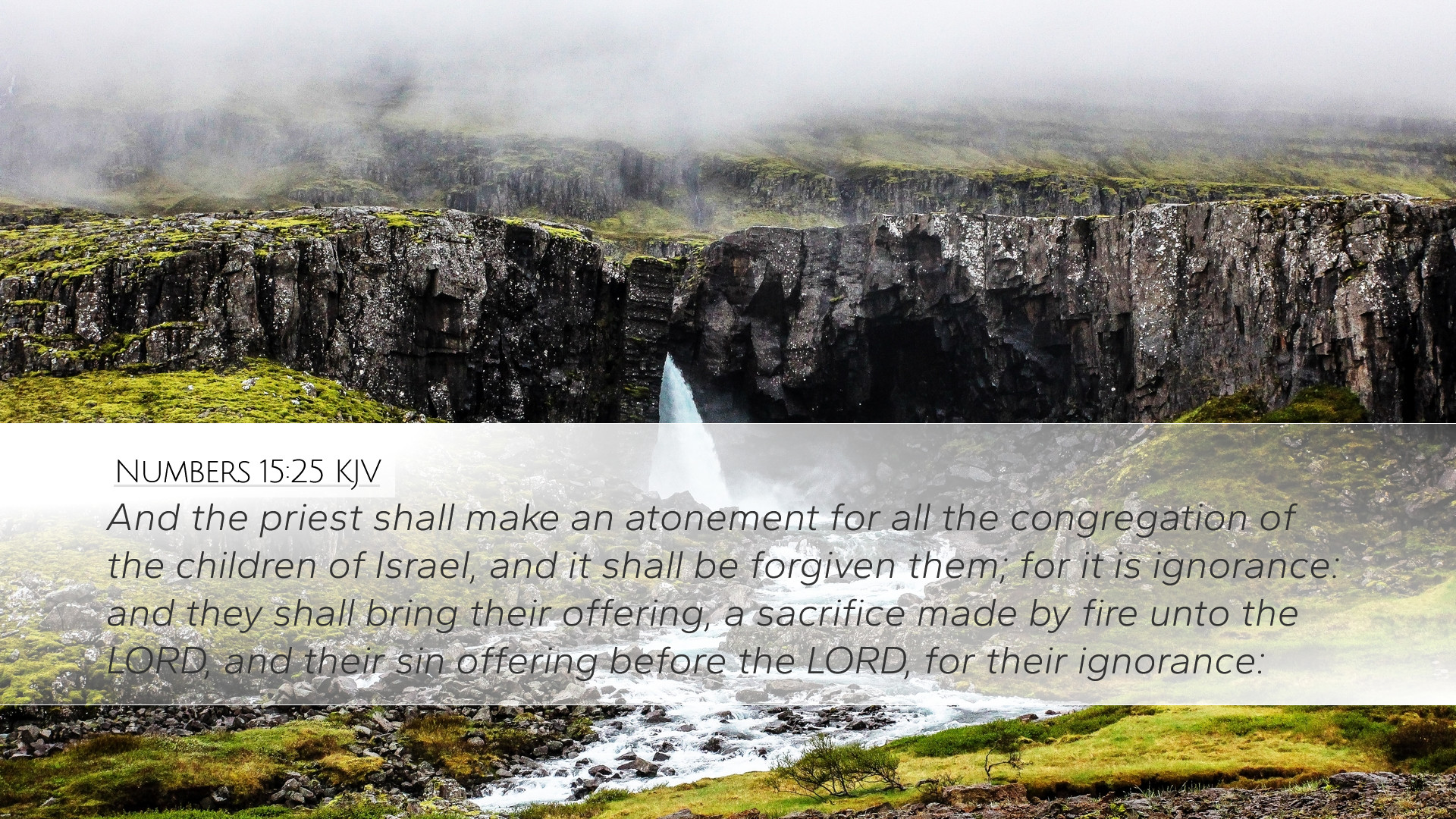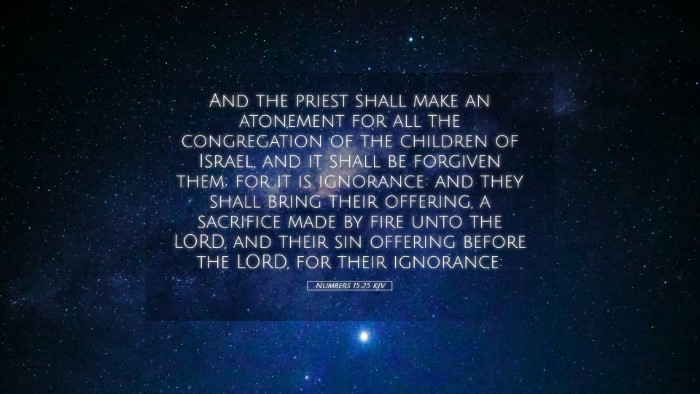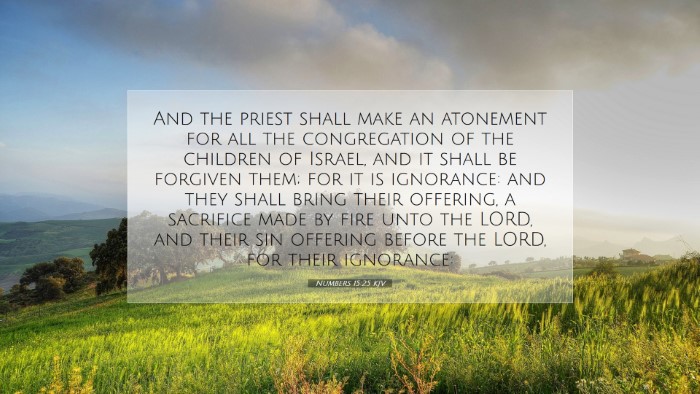Commentary on Numbers 15:25
Numbers 15:25 states: "And the priest shall make an atonement for all the congregation of the children of Israel, and it shall be forgiven them; for it is ignorance: and they shall bring their offering, a sacrifice made by fire unto the LORD, and their sin offering before the LORD, for their ignorance."
Overview
This verse is part of the laws concerning sin offerings as outlined in the Book of Numbers. Here, God provides regulations for the community of Israel regarding unintentional sins, emphasizing the importance of atonement and forgiveness. Public domain commentaries from Matthew Henry, Albert Barnes, and Adam Clarke elucidate various aspects related to this verse's theological implications and practical applications.
Theological Insights
- Nature of Sin: As highlighted by Matthew Henry, this verse indicates that there are different categories of sin. Here, the focus is on unintentional sins. This differentiation underscores God's understanding of human frailty and the grace available to those who may err without malicious intent.
- Atonement through Priestly Mediation: Albert Barnes elaborates on the necessity of the priest in the atonement process. It reinforces the role of the priesthood as mediators between God and the people, an archetype that finds its fulfillment in the New Testament with Christ as the ultimate High Priest.
- Forgiveness as a Divine Assurance: Adam Clarke emphasizes that forgiveness is assured for the congregation's ignorance. This reflects God's compassion and willingness to pardon, especially when sin is committed without the intent to rebel against divine law.
Commentary on the Verse
This verse is analytical and instructionally rich, requiring careful exegesis:
- The Role of the Priest: The priest’s action is central. Numbers 15:25 points to the priest's responsibility to conduct an atonement for unintentional sins committed by the community. This signifies that the priest has a unique role in facilitating reconciliation with God. Barnes notes that the priest would perform the necessary rituals, which would involve bringing specific offerings to the Lord, thereby fulfilling the requirements of the Law.
- Sin Offering Mechanics: The instruction regarding offerings, specifically a fire sacrifice, points to the deep-rooted sacrificial system that pervades Israel’s worship. Henry mentions that these offerings are not merely for expiating sin but also demonstrate the community's dedication to God and their longing for a restored relationship. The fire signifies their desire to please God and seek His favor.
- Understanding Ignorance: The acknowledgment of sin stemming from ignorance is noteworthy and underlines an essential theological principle – that God looks at the heart. Clarke provides insights that God accounts for intent, establishing that not all sin is equal before Him. Ignorance, while still sinful, shows a lack of full engagement and knowledge of God's laws.
Pastoral and Practical Applications
This verse offers profound implications for pastoral ministry and Christian living:
- Awareness and Education: Pastors can utilize this passage to stress the importance of educating congregants about scriptural law and God’s expectations. Knowledge empowers believers to walk in righteousness and lessens the likelihood of unintentional sins. It’s a call to discipleship and continual learning.
- Grace and Forgiveness: This scripture serves as a reminder of the limitless grace of God. It reassures believers that while they may falter unknowingly, there is a pathway to forgiveness through proper atonement. This is fundamental for pastoral counseling, encouraging individuals that their relationship with God can be restored.
- Collective Responsibility: The mention of “the congregation” emphasizes community involvement. Pastors are encouraged to foster an environment where collective worship and accountability are prioritized. The congregation's health and holiness are intertwined because corporate sin impacts the community as a whole.
Conclusion
In summary, Numbers 15:25 encapsulates vital truths about God’s holiness and the human condition. The nuances of atonement, the significance of the priestly role, and the nature of sin—especially sins committed in ignorance—serve as critical points for theological reflection, pastoral application, and personal growth. As such, this verse challenges believers to seek deeper knowledge of God's Word and embrace the forgiveness available through Christ, our ultimate High Priest.
Further Reflections
Engaging with Numbers 15:25 allows readers to explore the implications of unintentional sin within the larger context of the faith journey. The teachings gleaned from this verse can be tools for better understanding the nature of God’s grace, fostering deeper congregational relationships, and promoting a culture of repentance and forgiveness.


